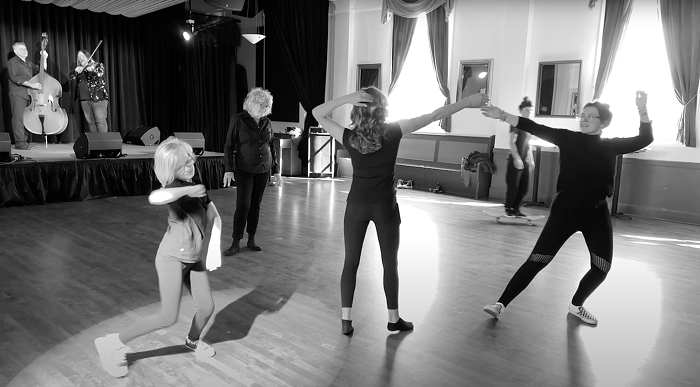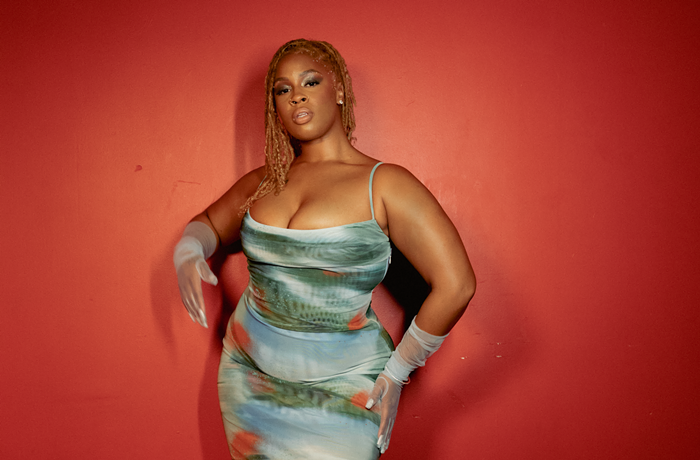RECENTLY, at a record label dinner, I got into a conversation with a music supervisor responsible for putting my songs in TV shows and movies. She asked me what I was listening to these days, and I said I couldn't stop listening to the latest Fiona Apple record, that I had tried peppering in other albums just to give myself a break, but I kept returning to The Idler Wheel. That I thought it was the most important—certainly the most thrilling—thing I had heard in years.
"Really?" she said.
I asked if she'd heard it.
She nodded yes, yes, she had, and then stammered, "I mean... it's Fiona, so... I mean, of course it's good, but..."
"You didn't like it?" I asked.
"Well, no, it's not that I don't like it. It's just..." And then she seemed to choose her words carefully. "It's just... she's feeling a lot. It's very... emotional."
I thought about this exchange over the next few weeks, listening and re-listening to the album, which was now permanently part of my car stereo system. It is an emotional record, and that's precisely what I love about it. I listened to this record with purpose and deliberation. It was never background music. It was always THE thing I was doing, not the soundtrack to whatever I was doing. It seemed to demand this sort of attention. As I listened, I understood what the music supervisor meant. This album would not be good in the background of a scene on Gossip Girl or How I Met Your Mother. These songs were not malleable, not written for a general scene or theme—they were specific, pointed, made for Apple and no one else.
I had listened to the latest Metric album Synthetica a few days before hearing Apple's newest (its complete title: The Idler Wheel Is Wiser Than the Driver of the Screw and Whipping Cords Will Serve You More Than Ropes Will Ever Do). I absolutely loved the Metric album. The songs were catchy, the hooks infectious. The first listen was good, the second even better, the third, terrific. And then I was done—ready for something new.
Synthetica is perfect in the way so many albums today are perfect: The production is sparkly and clean, there are no mistakes, everything is recorded to a click and compressed to be radio-ready, the sounds smashed into a sonic sugar cube of easy digestibility. It's a confection—a perfect little pop treat.
The Idler Wheel is messy. There is nothing sanitary about it. You can hear the piano bench creak, the lid close, the lingual clicks and pops of our heroine's cottonmouth. Apple growls, hisses, screams, mutters, and mumbles. It feels like a giant "fuck you" to everything happening now in music. Take a smash like Fun.'s "We Are Young." It's anthemic and huge, but it's also sonically squashed and compressed. The drums sound fake and digitized. (Whether they are or not, I don't know.) Mind you, I think the Fun. song is great for what it is: a pop song. But is it transcendent? Timeless? Does it inspire fear or joy or any sort of deep feeling in me?
Maybe it's a bad example, because that song wasn't written with me in mind. But the fact is, the songs I want to hear over and over are the songs that freak me out or make me think, make me care. I don't care about the people in "We Are Young," but when I hear something like "Daredevil" where the singer sounds like she's literally singing her guts out, pounding on the piano and growling, "Seek me out! Look at, look at, look at, look at me, I'm all the fishes in the sea!"—I care. I may even worry.
Even the melodies seem to be saying, "I know I'm not from this era and I'm not predictable and you may not even want to sing along, but I don't give a fuck." Yet somehow, the most memorable line on the album is a bizarrely meandering vocal where she stretches eight syllables of "I just want to feel everything" into 19. I guarantee none of the Billboard Top 100 have a vibrating falsetto melody line like the one Apple uses on "Left Alone" ("tears calcify... fears coincide"), yet she didn't let that stop her from making the album she wanted to make or feeling things to the degree she wanted to feel them.
The emotions on this record are what keep me coming back, becoming more ensnared. The guttural, hungry plea of "gimme gimme gimme what you got in your mind in the middle of the night" on "Daredevil" is just one of the dozens of moments where I find myself mouth agape, stopped at a green light, totally undone by the unabashed display of emotion I'm hearing. How often do you get to hear an artist at their most vulnerable, most confident, most afraid, most sinister, most undone? Fiona Apple gives us all of this in spades.
Listening to The Idler Wheel is a near cinematic experience. You can picture the sea of screaming schoolchildren Apple has delicately run (in the form of a sound file) underneath her voice on "Werewolf"; "Hot Knife" conjures up a Tim Burton-esque vaudeville show with intertwined melodies sung by Apple and her sister Maude Maggart, and you can picture our sullen star barely making it through a dinner party on "Valentine" ("I made it to a dinner date/my teardrops seasoned every plate").
She's notorious for ignoring the audience when she performs. She says she wants to give them the gift of watching someone have an authentic experience onstage.
"I feel like that's my part of our relationship," she said recently in an interview.
And she follows suit on this album.
I remember interviewing Fiona years ago after Extraordinary Machine came out. We spoke on the phone when I was a DJ on the radio in San Diego, and I told her how impressed and awestruck I was by the title track. Not only was it melodically inventive, the logic displayed in the song was so sophisticated and ironclad, I couldn't believe my ears. Without going into too much detail, she implements an "if x + y = z, then z = y + x" that works out perfectly, both in rhyme and reason.
She does the same in so many songs on this album, it's hard for a fellow songwriter not to marvel at her almost facile delivery of unexpectedly alliterative lines like "you made your major overtures" (repeat it out loud and you'll see), or ideas like "I could liken you to a chemical the way you make me compound a compound," or "we could still support each other, all we gotta do's avoid each other." It's clear this writer has taken a lot of care and a lot of time with each song, melody, line, word, idea. It's special. It's a gift.
So maybe you won't hear the new Fiona Apple record in the background of a car commercial or in any movie trailers. But it will stand the test of time. It is expertly crafted; the orchestrations and arrangements are breathtaking. The feelings it inspires are soul stirring, frightening, sensual, thrilling, and dangerous. And that's rock and roll.
Anya Marina's third album, Felony Flats, is out now on Chop Shop Records; hear her podcast PDXOXO at anyamarina.com.



















